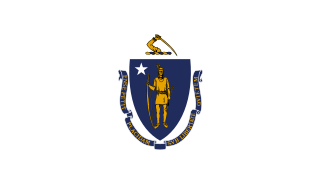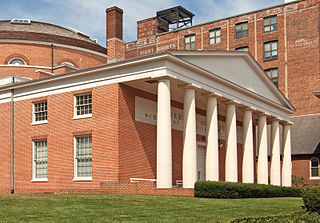
Spencer Fullerton Baird was an American naturalist, ornithologist, ichthyologist, herpetologist, and museum curator. Baird was the first curator to be named at the Smithsonian Institution. He would eventually serve as assistant Secretary of the Smithsonian from 1850 to 1878, and as Secretary from 1878 until 1887. He was dedicated to expanding the natural history collections of the Smithsonian which he increased from 6,000 specimens in 1850 to over 2 million by the time of his death. He published over 1,000 works during his lifetime.
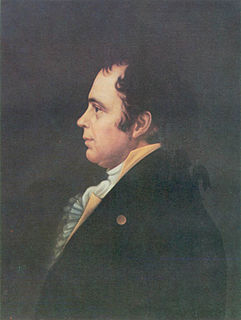
James McHenry was a Scotch-Irish American military surgeon and statesman. McHenry was a signer of the United States Constitution from Maryland and the eponym of Fort McHenry. He was a delegate to the Continental Congress from Maryland, and the third United States Secretary of War (1796–1800), under the first and second presidents, George Washington and John Adams. He married his wife, Peggy Caldwell, on January 8, 1784.
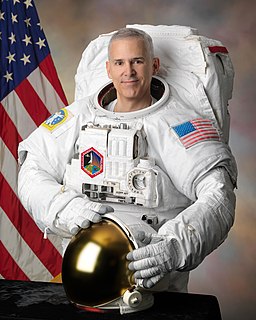
Lee Miller Emile Morin M.D., Ph.D. is a United States Navy Captain and NASA astronaut. He flew on STS-110 in 2002.
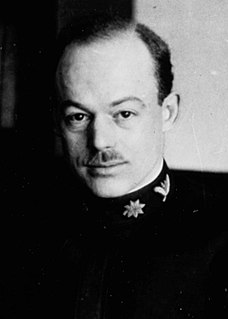
Jerome Clarke Hunsaker was an American airman born in Creston, Iowa, and educated at the Naval Academy and the Massachusetts Institute of Technology.

Henry Wiencek is an American journalist, historian and editor whose work has encompassed historically significant architecture, the Founding Fathers, various topics relating to slavery, and the Lego company. In 1999, The Hairstons: An American Family in Black and White, a biographical history which chronicles the racially intertwined Hairston clan of the noted Cooleemee Plantation House, won the National Book Critics Circle Award for biography.
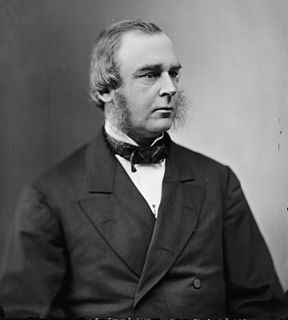
George Bailey Loring was a Member of the United States House of Representatives from Massachusetts.

William Hinson Cole was an American politician and Congressman from Maryland.

Christopher Christian Cox was known as an American surgeon, professor at Philadelphia College of Medicine and served briefly as a politician.
Henry Crécy Yarrow was an American ornithologist, herpetologist, naturalist, and surgeon.
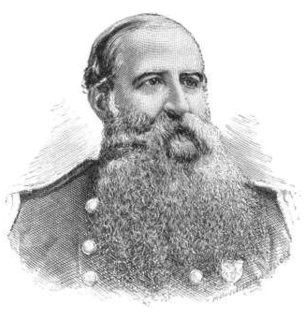
Charles Henry Crane B.A. M.A. M.D. was an American physician and the 13th Surgeon General of the United States Army (1882–1883). He was the son of Colonel Ichabod B. Crane
Jerome Farris is a Senior United States Circuit Judge of the United States Court of Appeals for the Ninth Circuit.
Jerome Aloysius Daugherty Sebastian was an American clergyman of the Roman Catholic Church. He served as an auxiliary bishop of the Archdiocese of Baltimore from 1954 until his death in 1960.
Brigadier General George Henry Torney was a physician in the United States Navy and Army who served as the 21st Surgeon General of the United States Army.
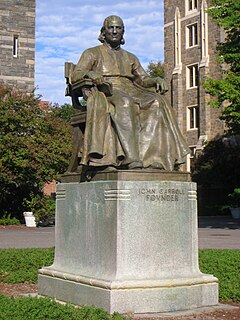
Bishop John Carroll is a statue by the sculptor Jerome Connor commemorating Archbishop John Carroll, the founder of Georgetown University and the first Catholic bishop in the United States. Located in front of Healy Hall, on university's campus in the Georgetown neighborhood of Washington, D.C., the statue consists of a bronze sculpture of Carroll on top of a granite pedestal.

Jerome Connor was an Irish sculptor.
Washington University was a medical school in Baltimore, Maryland. It was founded in 1827, chartered as Washington Medical College in 1833, closed in 1851, revived in 1867 as Washington University, and closing for good in 1878. The remains were absorbed into the College of Physicians and Surgeons, later the University of Maryland School of Medicine.
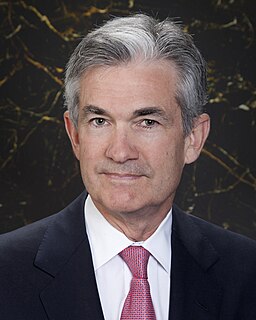
Jerome Hayden "Jay" Powell is the 16th and current Chair of the Federal Reserve, serving in that office since February 2018. He was nominated to the Fed Chair position by President Donald Trump, and confirmed by the United States Senate.

Major General Joseph Caravalho, Jr., M.D., is a physician and was a career officer in the Medical Corps of the United States Army. He is currently the president and CEO of the Henry M. Jackson Foundation for the Advancement of Military Medicine. He has held specialized staff medical positions, served in operations at hospitals, and commanded major medical installations across the United States as well as operations in actions overseas. In December 2015 he was appointed as the Joint Staff surgeon, the chief medical advisor to the Chairman of the Joint Chiefs of Staff.

Jedediah Hyde Baxter was a career United States Army officer and doctor who attained the rank of brigadier general as Surgeon General of the United States Army.

Jerome M. Adams is an American anesthesiologist and a vice admiral in the U.S. Public Health Service Commissioned Corps who currently serves as the 20th Surgeon General of the United States. Before assuming his current role, he served as the Indiana State Health Commissioner (2014–17). On June 29, 2017, President Donald Trump nominated Adams to become Surgeon General of the United States. Adams was confirmed by the United States Senate on August 3, 2017. He assumed office on September 5, 2017.
Stafford, Morgan Hewitt. A Genealogy of the Kidder Family: Comprising the Descendants in the Male Line of Ensign James Kidder 1626-1676 of Cambridge and Billerica in the Colony of Massachusetts Bay. Rutland, VT: Tuttle Publishing Co., Inc., 1941.
Rathbun, Richard, "Jerome Henry Kidder," Bulletin of the Philosophical Society of Washington, Vol. 11, 1890, pp. 480–488.
